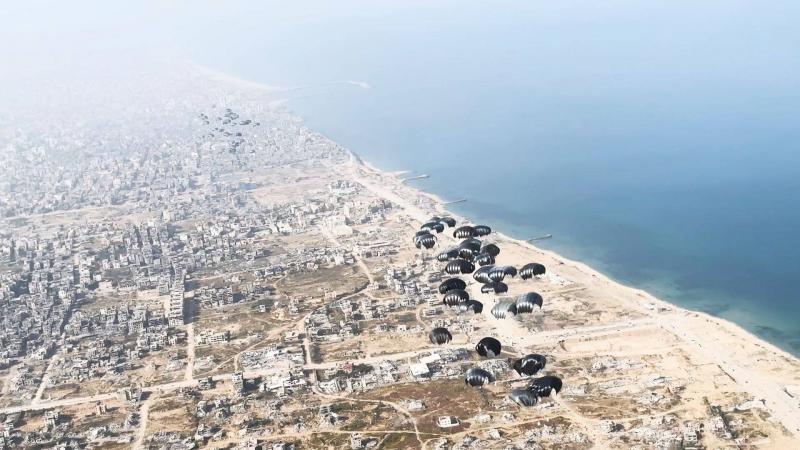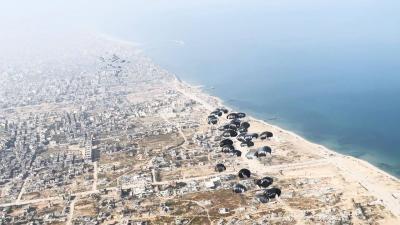The Biden administration is finalizing the essential components of its plan to establish a floating pier off the Gaza coast to send much-needed food shipments and other humanitarian aid as the specter of famine looms. However, some U.S. officials are questioning whether the military plan is even necessary. Four U.S. Army ships are expected to arrive in the Eastern Mediterranean in the coming days.
But the evolving circumstances amidst the war have cast renewed doubt on the seaport plan, according to a report published by The Washington Post. Among the challenges is the unstable security situation in the region, where Iran’s pledge to retaliate against the Israeli strike on its consulate in Damascus has raised concerns that Americans in the area face increasing risks. U.S. officials have denied Washington's involvement in the attack, but Tehran asserts that as Israel's main supporter, "the United States must be held accountable."
Another variable is the recent Israeli attack on a humanitarian convoy belonging to the World Central Kitchen, which resulted in the deaths of seven relief workers. While Israel accepted responsibility for the strike and stated that aid workers should not be targeted, the tragedy has complicated U.S. efforts to arrange the distribution of an estimated two million meals scheduled to be unloaded from the pier daily.
Officials say there is also uncertainty about how quickly Israel can fulfill its promise, announced on Thursday under pressure from the Biden administration, to open an Israeli port and an additional border crossing into northern Gaza to allow more aid to enter. A senior U.S. Defense Department official warned that it is too early to speculate on whether the pier might ultimately go unused, but acknowledged that the food distribution plan remains in place.
This official stated that the security plan for the pier has been agreed upon in principle, with Israeli forces assuring their U.S. counterparts that they would provide significant protection. Another defense official noted that construction of the pier is ongoing, at least for now, but questioned whether the initial expectations would hold.
After Biden announced the plan during his State of the Union address in March, the Pentagon indicated that the pier could be in use for several months. The defense official mentioned that while some officials still view this as the prevailing expectation, this timeline might not be necessary if other means of delivering aid become available.
Another senior U.S. official disagreed, stating that the pier still holds "certain" advantages. This official remarked, "To reach the scale of assistance we believe is necessary, a comprehensive approach will be required.. so we will not only need ground routes but will also need the pier for some time."
The Biden administration, facing sharp criticisms for its steadfast support of Israel, has intensified pressure on Israeli leaders not only to protect civilians in their military campaign but to significantly increase the amount of food allowed into Gaza. The White House warned on Thursday that failure to respond to these demands could lead to a change in U.S. policy towards Israel.




